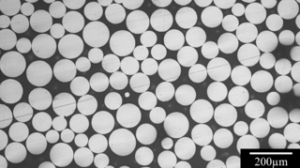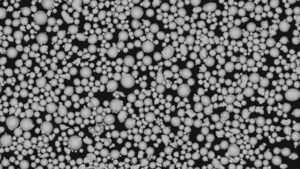Overview of FeCoNiCrMn Powder
FeCoNiCrMn powder, often referred to as a high-entropy alloy (HEA), represents a revolutionary advancement in materials science. Known for its remarkable mechanical, chemical, and thermal properties, this metal powder is extensively used in applications requiring strength, corrosion resistance, and versatility. HEAs, including FeCoNiCrMn, have gained popularity due to their unique multi-principal element design, diverging from traditional alloys dominated by one or two key elements.
In this comprehensive guide, we’ll dive deep into FeCoNiCrMn powder, exploring its composition, characteristics, models, and applications. We’ll also discuss advantages, limitations, and key suppliers, giving you the full picture to make informed decisions.
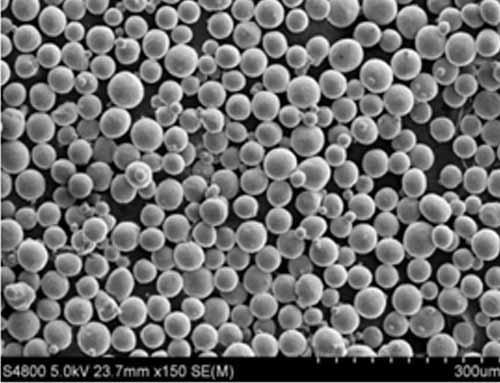
What Is FeCoNiCrMn Powder?
FeCoNiCrMn powder is a quintuple-element alloy powder combining iron (Fe), cobalt (Co), nickel (Ni), chromium (Cr), and manganese (Mn) in nearly equal proportions. This balanced composition forms the basis of its high-entropy characteristics, resulting in excellent structural and functional properties.
Key Highlights
- High Strength and Hardness: Exceptional mechanical properties due to its unique atomic arrangement.
- Thermal Stability: Ideal for high-temperature applications.
- Corrosion Resistance: Resistant to oxidation and chemical degradation.
- Versatility: Widely used in additive manufacturing, aerospace, and biomedical industries.
Composition of FeCoNiCrMn Powder
Understanding the composition is critical to grasp why this powder performs so well. Here’s a breakdown:
| Element | Percentage (Typical Range) | Role in Alloy |
|---|---|---|
| Iron (Fe) | 19-23% | Enhances magnetic properties and toughness. |
| Cobalt (Co) | 19-23% | Provides strength and thermal resistance. |
| Nickel (Ni) | 19-23% | Improves corrosion resistance and ductility. |
| Chromium (Cr) | 19-23% | Offers corrosion resistance and hardness. |
| Manganese (Mn) | 19-23% | Contributes to workability and anti-wear properties. |
This near-equiatomic distribution minimizes crystal lattice distortion, leading to superior performance under challenging conditions.
Characteristics of FeCoNiCrMn Powder
The material’s properties make it a standout choice across industries. Let’s examine these traits more closely:
| Property | Details |
|---|---|
| High Entropy | Unique atomic arrangement due to equal distribution of elements. |
| Thermal Stability | Stable structure and performance at elevated temperatures (up to 1000°C and beyond). |
| Corrosion Resistance | Excellent resistance to oxidation and chemical attack, even in harsh environments. |
| Mechanical Strength | High tensile strength, ductility, and resistance to wear. |
| Magnetic Properties | Retains magnetic behavior useful in electronics and specialized machinery. |
These properties ensure FeCoNiCrMn performs in demanding scenarios such as jet engines, 3D printing, and marine environments.




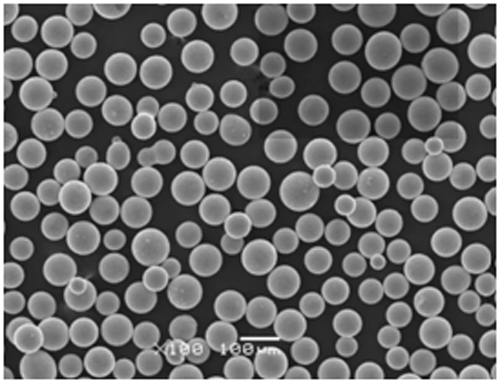
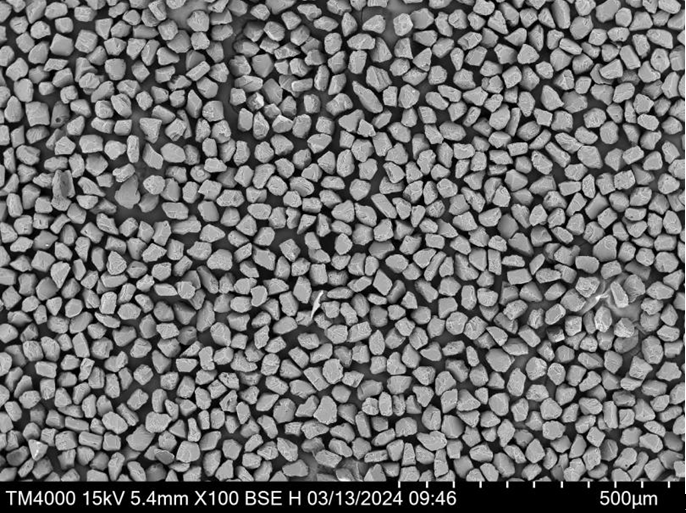
Applications of FeCoNiCrMn Powder
FeCoNiCrMn powder is integral to several high-tech industries. Below is an application matrix for better clarity:
| Industry | Applications | Key Benefits |
|---|---|---|
| Aerospace | Jet engine components, turbine blades. | Heat resistance and strength under stress. |
| Additive Manufacturing | 3D printing of complex structures. | Versatility and high-quality finishes. |
| Biomedical | Surgical instruments, implants. | Biocompatibility and corrosion resistance. |
| Marine | Ship parts, underwater machinery. | Corrosion and wear resistance. |
| Energy | Power plants, nuclear reactors. | Stability under high temperatures and pressure. |
FeCoNiCrMn Powder Models
Let’s delve into specific FeCoNiCrMn powder models to better understand variations and their specific applications:
| Model Name | Description |
|---|---|
| FeCoNiCrMn-101 | Standard grade for general-purpose additive manufacturing and coatings. |
| FeCoNiCrMn-202 | Enhanced corrosion-resistant formulation for marine and biomedical use. |
| FeCoNiCrMn-HT100 | High-temperature variant optimized for aerospace and power generation. |
| FeCoNiCrMn-WR | Wear-resistant model ideal for industrial machinery and mining tools. |
| FeCoNiCrMn-BM | Biocompatible version specifically designed for medical implants and instruments. |
| FeCoNiCrMn-AM | Advanced grade for 3D printing applications, ensuring smoother finishes and intricate detailing. |
| FeCoNiCrMn-Plus | Premium alloy blend with superior tensile strength and ductility for extreme conditions. |
| FeCoNiCrMn-Ceramix | Hybrid formulation incorporating ceramic-like properties for added hardness and wear resistance. |
| FeCoNiCrMn-Light | Lightweight version for aerospace and automotive applications requiring high strength-to-weight ratio. |
| FeCoNiCrMn-Hybrid | Versatile model tailored for hybrid applications involving thermal and corrosion challenges. |
Specifications and Standards
When sourcing FeCoNiCrMn powder, it’s essential to understand the specifications:
| Parameter | Range | Notes |
|---|---|---|
| Particle Size | 15-150 microns | Optimized for 3D printing and laser sintering. |
| Purity | ≥99.5% | Ensures high performance and reliability. |
| Density | 7.5-8.0 g/cm³ | Reflective of its high entropy and composition. |
| Melting Point | ~1350°C | Offers excellent thermal stability. |
| Standards Compliance | ISO 9001, ASTM E-8 | Ensures quality and consistency across batches. |
Advantages and Disadvantages of FeCoNiCrMn Powder
Every material has its pros and cons, and FeCoNiCrMn powder is no exception. Here’s a comparison:
| Advantages | Disadvantages |
|---|---|
| Exceptional mechanical properties | Higher cost compared to conventional alloys. |
| Versatile for various applications | Limited suppliers and sourcing challenges. |
| Outstanding corrosion and oxidation resistance | Requires advanced machinery for processing. |
| Thermal stability at extreme temperatures | Potential limitations in lightweight applications. |
Suppliers and Pricing
Finding reliable suppliers is crucial for quality assurance. Below is a curated list:
| Supplier Name | Location | Pricing (USD/Kg) | Specialization |
|---|---|---|---|
| AlloyTech Solutions | USA | $250-$300 | Aerospace-grade powders. |
| PowderMasters Inc. | Germany | $220-$280 | Customized particle sizing. |
| GlobalHEA Suppliers | China | $200-$240 | Bulk orders and standard grades. |
| MetalMatrix Co. | India | $180-$220 | Cost-effective options for general use. |
| HEA Dynamics | Japan | $270-$320 | High-end premium alloys. |
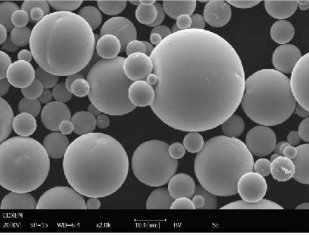
FAQs
| Question | Answer |
|---|---|
| What is the primary use of FeCoNiCrMn powder? | It’s used in aerospace, additive manufacturing, and biomedical applications for its versatility. |
| Is FeCoNiCrMn biocompatible? | Yes, specific models like FeCoNiCrMn-BM are designed for biomedical uses. |
| What makes it a high-entropy alloy? | The nearly equal proportion of five principal elements creates a stable, high-entropy configuration. |
| How is it different from conventional alloys? | It offers better corrosion resistance, thermal stability, and mechanical strength. |
| Can FeCoNiCrMn be used in 3D printing? | Absolutely, it’s widely employed in additive manufacturing due to its fine powder distribution. |
